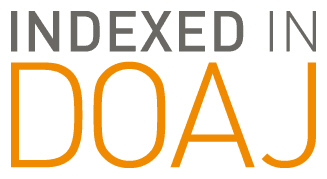Short Title
Pandemic Policy Preparedness
Keywords
COVID-19, Educational Leadership, Educational Policy, School Board, Pandemic, Coronavirus
Abstract
Educational leadership requires a set of skills and practices that are shaped by professional ethics. Professional ethics are the dynamics of both personal and professional ethics and requires educational leaders to understand how these ethical codes drive interactions and decisions especially in difficult situations (Shapiro & Stefkovich, 2016). Anderson (2014) argues that educational leaders may not have the deeper understanding of social justice necessary to “better scholarship, but also to better practice” (pp. x) due to the current expectations of leaders including increasing test scores and accountability ratings and addressing social and emotional learning.
Adding to the current expectations of school leaders are unparalleled situations such as Coronavirus Disease 2019 (COVID-19), a fast spreading, communicable disease. On March 11, 2020, the World Health Organization declared COVID-19 a global pandemic and with growing cases in the United States, unprecedented closures resulted. The U. S. Department of Education (2020) communicated that even during this time, districts must be “mindful of the requirements of Section 504, Title II, and Title VI, to ensure that all students are able to study and learn in an environment that is safe and free from discrimination” (p. 1). Legislative policy is also enacted as a result of the health crisis. On March 27, 2020, the United States Congress passed the Coronavirus Aid, Relief, and Economic Security (CARES) Act which provides an economic relief plan and educational provisions for public and private schools.
Indefinite school closures have left some school districts unprepared to manage the necessary provisions to provide an equitable education for all students. As learning hubs were launched for at-home learning guided by parents and students, accommodations for English Learners (EL), students with disabilities, and students receiving Special Education services were not on the forefront of the design in every district, potentially providing larger gaps in learning. The launch of online at-home learning also requires internet access and devices to even access the learning, providing another potential inequitable gap, especially in low socioeconomic households. This necessary response to COVID-19 placed a burden on parents who may be working from home, or not at home, or not capable of assisting with the level of instruction their child requires to replace the daily instruction of a classroom teacher.
The purpose of this paper will be to evaluate State of Texas local school board policies FB (LEGAL) and FB (Local) Equal Education Opportunity in the wake of the World Health Organization declaration of coronavirus disease 2019 (COVID-19) as a pandemic and the resulting actions of school closures. We will investigate the potential discrimination under Section 504, Title II, and Title VI during an unprecedented time of transitioning from learning at school to learning at home is reasonable to ensure that educational opportunities are equitable. The need to understand how such a pandemic closure impacts the teaching and learning of all students is essential to policy change for educational leaders in the way of a new reality of learning and lesson delivery during a time of a global pandemic.
Recommended Citation
Burkett, Jerry and Reynolds, Danielle
(2019)
"Pandemic Policy Preparedness: Unintentional Student Discrimination in the Wake of COVID-19,"
School Leadership Review: Vol. 15:
Iss.
1, Article 23.
Available at:
https://scholarworks.sfasu.edu/slr/vol15/iss1/23
Included in
Educational Leadership Commons, Other Education Commons, Special Education Administration Commons
Tell us how this article helped you.


